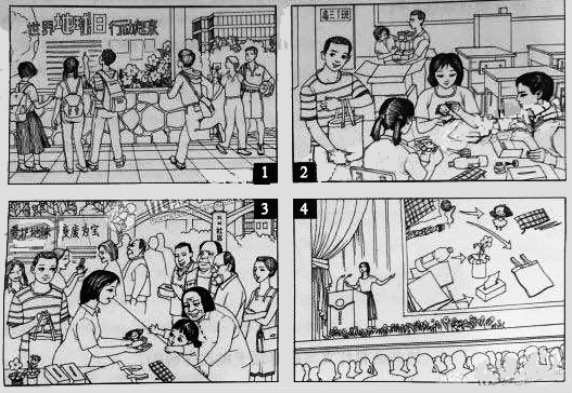题目内容
阅读下面短文,从短文后各题所给的四个选项(A, B, C和D)中,选出可以填入空白处的最佳选项,并在答题卡上将该项涂黑。
Joe Simpson and Simon Yates were the first people to climb the West Face of the Siula Grande in the Andes mountains. They reached the top_______, but on their way back conditions were very_______. Joe fell and broke his leg. They both knew that if Simon _______ alone, he would probably get back _______. But Simon decided to risk his _______ and try to lower Joe down the mountain on a rope(绳).
As they _______ down, the weather got worse. Then another _______ occurred. They couldn’t see or hear each other and, _______, Simon lowered his friend over the edge of a precipice(峭壁). It was _______ for Joe to climb back or for Simon to pull him up. Joe’s _______ was pulling Simon slowly towards the precipice. _______, after more than an hour in the dark and the icy cold, Simon had to _______. In tears, he cut the rope. Joe _______ into a large crevasse(裂缝)in the ice below. He had no food or water and he was in terrible pain. He couldn’t walk, but he_______ to get out of the crevasse and started to _______ towards their camp, nearly ten kilometers _______.
Simon had _______ the camp at the foot of the mountain. He thought that Joe must be _______, but he didn’t want to leave_______. Three days later, in the middle of the night, he heard Joe’s voice. He couldn’t _______ it. Joe was there, a few meters from their tent, still alive.
1.A. hurriedly B. carefully C. successfully D. early
2.A. difficult B. similar C. special D. normal
3.A. climbed B. worked C. rested D. continued
4.A. unwillingly B. safely C. slowly D. regretfully
5.A. fortune B. time C. health D. life
6.A. lay B. settled C. went D. looked
7.A. damage B. storm C. change D. trouble
8.A. by mistake B. by chance C .by choice D. by luck
9.A. unnecessary B. practical C. important D. impossible
10.A. height B. weight C. strength D. equipment
11.A. Finally B. Patiently C Surely D Quickly
12.A. stand back B. take a rest C make a decision D. hold on
13.A. jumped B. fell C escaped D backed
14.A. managed B. planned C. waited D. hoped
15.A. run B. skate C. move D. march
16.A. around B. away C. above D. along
17.A. headed for B .traveled to C. left for D. returned to
18.A. dead B .hurt C. weak D. late
19.A. secretly B. tiredly C. immediately D. anxiously
20.A. find B. believe C. make D. accept


